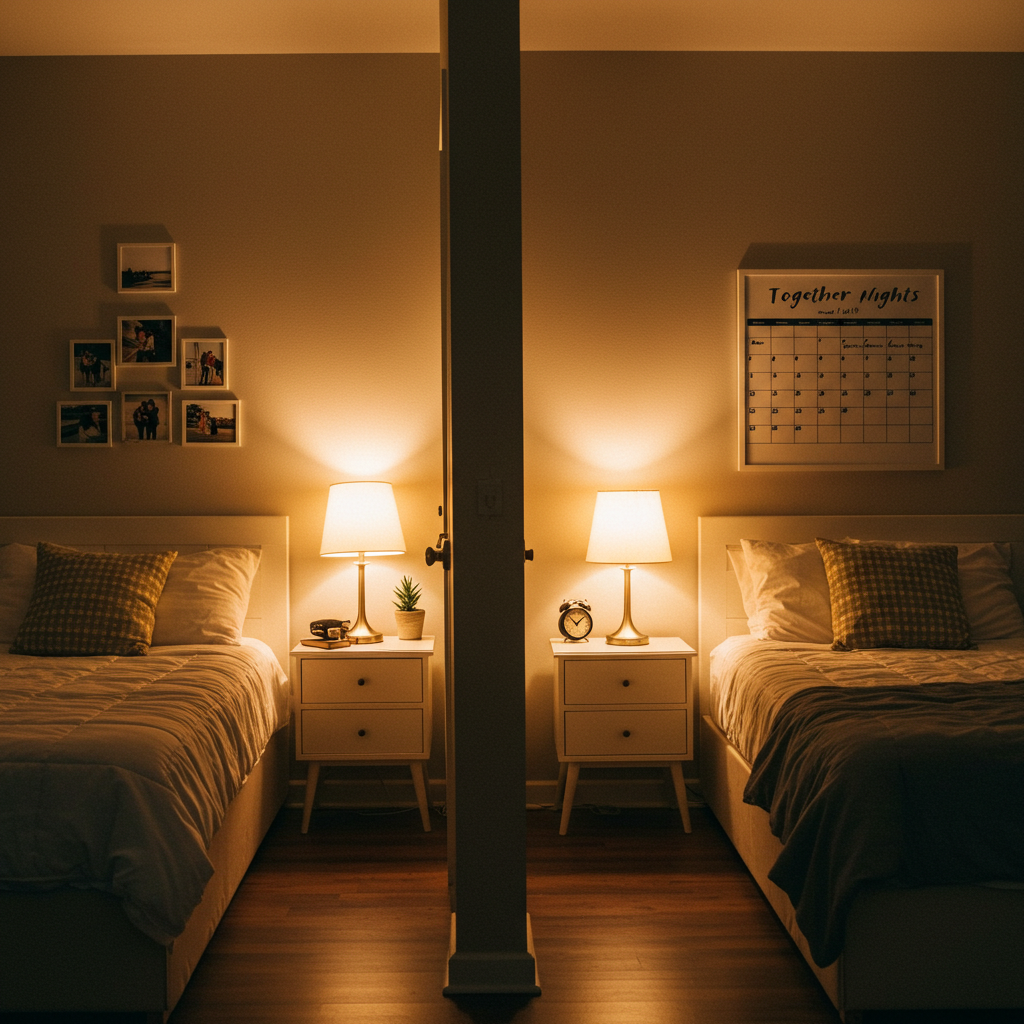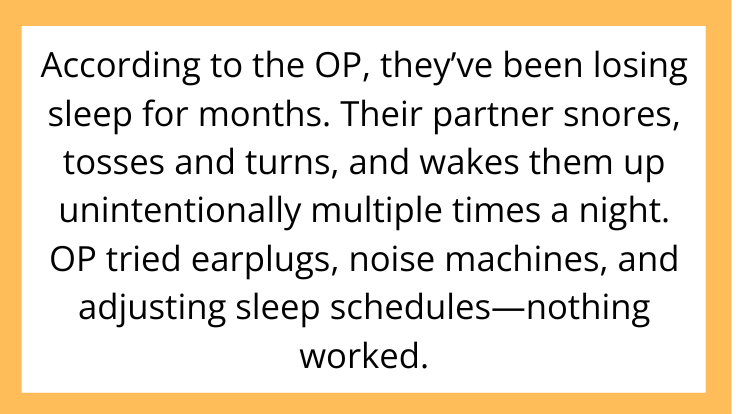AITAH for Wanting My Partner to Sleep in a Separate Room Because I Value My Sleep?
Sharing a bed is often seen as a symbol of closeness in a relationship—but what if it’s also the reason you’re constantly exhausted? A recent r/AITAH post tackled this exact dilemma, and it stirred up serious debate.
The original poster (OP) asked if they were wrong for telling their partner they no longer wanted to share a bed every night due to poor sleep. The decision wasn’t rooted in emotional distance or lack of love—it was about prioritizing rest and well-being. So, does choosing sleep over tradition make someone an inconsiderate partner?
Let’s dive into this increasingly common relationship tension between intimacy and individual needs.
The Scenario: Sleepless Nights and Building Frustration

According to the OP, they’ve been losing sleep for months. Their partner snores, tosses and turns, and wakes them up unintentionally multiple times a night. OP tried earplugs, noise machines, and adjusting sleep schedules—nothing worked.
Eventually, OP asked if they could sleep in a separate room a few nights a week to get decent rest. The partner was hurt and accused OP of “giving up on intimacy” and “treating them like a roommate instead of a partner.” Mutual friends chimed in with opinions, ranging from “You’re just tired, not cruel” to “That’s not how relationships work.”
Why Prioritizing Sleep Isn’t Selfish

Sleep is not a luxury—it’s a necessity. And the lack of it can impact everything from mood and memory to physical health and relationship satisfaction.
Here’s why OP’s request might actually be healthier in the long term:
-
Improved communication: Well-rested people are better communicators and less prone to irritability.
-
Better health: Chronic sleep deprivation can lead to serious medical conditions, including high blood pressure and depression.
-
Preserving intimacy: Sleep deprivation can actually erode the emotional connection it’s supposed to symbolize.
It’s not about avoiding your partner—it’s about showing up as your best self for them.
Breaking the Myth: Same Bed = Stronger Relationship?

We’ve been sold the idea that successful couples must sleep in the same bed every night. But research shows that 1 in 4 couples already sleep in separate rooms, and that number is growing.
Just like everything in relationships, sleeping arrangements should be personalized—not based on societal pressure. Emotional intimacy isn’t about physical proximity at all times; it’s about understanding, communication, and mutual respect.
How to Approach the Conversation Without Causing Harm

If you’re considering making a similar request, here’s how to navigate it thoughtfully:
-
Be honest, but gentle: Make it clear it’s about your needs, not their flaws.
-
Offer compromise: Maybe you start with a few nights apart per week or keep weekend cuddles sacred.
-
Reaffirm your love: Remind your partner that your feelings haven’t changed—just your sleep quality.
-
Use neutral language: Instead of “I can’t sleep with you,” say “I’ve noticed I sleep better in a quiet space and want to find a way that works for both of us.”
Tone and timing matter more than the message itself.
Why the Internet Was Divided

Reddit’s AITAH community was split. Some users applauded OP for prioritizing self-care and creating healthier boundaries. Others felt the move signaled emotional distance and warned of long-term consequences if the partner’s feelings weren’t addressed seriously.
The key takeaway: Communication, not co-sleeping, is the true foundation of a lasting relationship.
Final Thoughts: Sleep, Space, and Self-Respect in Relationships

Asking for a separate room may feel like a betrayal of romantic norms, but it could also be an act of self-respect and honesty. Every couple is different, and what matters most is how decisions are made—together, transparently, and with empathy.



